Health
World Sleep Day 2025: Mouka champions sleep health awareness

In commemoration of World Sleep Day 2025, leading mattress manufacturer, Mouka, has reinforced its commitment to promoting sleep health by educating Nigerians on the profound impact of quality sleep on overall well-being.
Mouka made the remarks on 2025 World Sleep Day, March 14, aligning with the global theme: “Make Sleep A Priority”.
It said that it joined forces with the World Sleep Society, a body of sleep health professionals, to create more awareness about sleep.
Other key industry bodies involved in the awareness and sensitisation programme include the Nigeria Society of Physiotherapy (NSP) and the National Association of Orthopaedic and Manual Therapists (NAOMT).
Mouka joins these teams to drive awareness on the essential role of sleep in maintaining a balanced, healthy life.
According to the World Sleep Society, scientific evidence shows that good sleep is fundamental to physical and mental resilience.
Meanwhile experts note that poor sleep adversely affects nearly all aspects of health.
In recognition of this, Mouka stated that it has remained at the forefront of advocating for sleep wellness.
This it does, not only through its premium-quality sleep products, but also via educational initiatives aimed at fostering a culture of prioritizing rest.
Driving sleep awareness through nationwide sensitization
To mark this year’s World Sleep Day, Mouka, in collaboration with NSP and NAOMT conducted physical sensitization sessions.
Along with some selected organizations, they equipped Nigerians with crucial knowledge on sleep health.
Additionally, the company leveraged print and digital platforms to amplify its message, ensuring a broader reach and deeper engagement.
As the global discourse on sleep health gains momentum, Mouka remains unwavering in its mission to advocate for quality sleep as a fundamental pillar of wellness.
He also reinforced its position as the foremost provider of sleep solutions in Nigeria.
About World Sleep Day
World Sleep Day is celebrated annually on the Friday before the spring vernal equinox, which falls on March 14 this year.
The goal of this day is to highlight the importance of good sleep for overall health and well-being.
It was also crafted to raise awareness about sleep disorders and their consequences.
The theme for World Sleep Day 2025 is “Make Sleep Health a Priority”.
It emphasizes the need to prioritize sleep as an essential aspect of our daily lives, just like nutrition and exercise.
This year’s event has already gathered over 500 delegates from more than 70 countries, making it a global initiative.
To promote sleep health, the World Sleep Society recommends maintaining a regular sleep schedule.
It created a relaxing sleep environment and reflecting on the sleep quality of an individual during the day.
By prioritizing sleep health, one can reduce the risk of sleep-related problems, such as obesity, diabetes, and cardiovascular disease.
How many hours of sleep is recommended per day?
The World Sleep Society and other health organizations recommend the following amounts of sleep per day for different age groups:
- Newborns (0-3 months): 14-17 hours
- Infants (4-11 months): 12-15 hours
- Toddlers (1-2 years): 11-14 hours
- Preschoolers (3-5 years): 10-13 hours
- School-age children (6-13 years): 9-11 hours
- Teenagers (14-17 years): 8-10 hours
- Young adults (18-25 years): 7-9 hours
- Adults (26-64 years): 7-9 hours
- Older adults (65 years and over): 7-8 hours
Advantages of sleep
Sleep plays a vital role in maintaining our physical and mental health. Here are some advantages of sleep:
Physical Health Benefits
1. Boosts immune system: Sleep helps to strengthen our immune system, reducing the risk of illnesses.
2. Repairs and regenerates tissues: Sleep allows our body to repair and regenerate damaged tissues.
3. Improves cardiovascular health: Chronic sleep deprivation is linked to an increased risk of cardiovascular disease.
4. Supports weight management: Sleep affects hunger hormones, leading to weight gain or loss.
5. Reduces inflammation: Sleep has anti-inflammatory properties, reducing inflammation and pain.
Mental Health Benefits
1. Reduces stress and anxiety: Sleep helps to regulate emotions, reducing stress and anxiety.
2. Improves mood: Sleep affects neurotransmitters, leading to improved mood and reduced depression.
3. Enhances cognitive function: Sleep improves concentration, attention, and memory.
4. Supports mental health: Sleep disturbances are linked to mental health disorders, such as depression and anxiety.
Performance and Productivity Benefits
1. Improves physical performance: Sleep affects athletic performance, speed, and accuracy.
2. Enhances creativity: Sleep allows our brain to consolidate memories and make new connections.
3. Boosts productivity: Sleep affects our ability to focus, leading to increased productivity.
4. Reduces accidents and errors: Sleep deprivation increases the risk of accidents and errors.
Other Benefits
1. Improves skin health: Sleep affects skin regeneration and collagen production.
2. Supports eye health: Sleep helps to reduce eye strain and fatigue.
3. Increases longevity: Chronic sleep deprivation is linked to reduced lifespan.
4. Enhances overall quality of life: Sleep affects our overall well-being, leading to improved quality of life.
The reader is hereby urged at the end of this sentence to run and catch a quick nap.
Health
NAFDAC Raises Alarm as Fake Cowbell Milk Floods Nigerian Markets
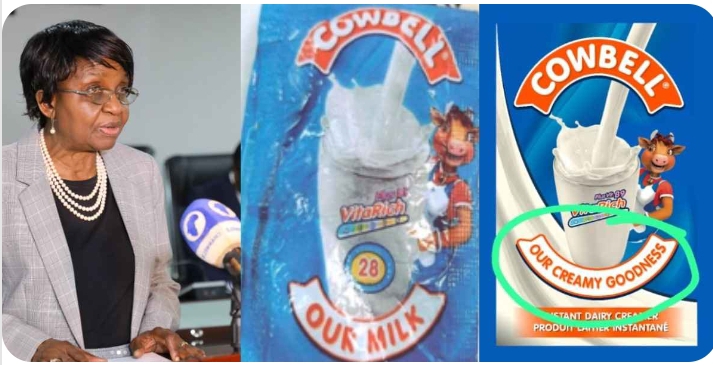
The National Agency for Food and Drug Administration and Control (NAFDAC) has raised alarm over the circulation of fake Cowbell “Our Milk” 12g sachets in Nigeria.
In a statement issued on Friday, August 22, 2025, the agency explained that the counterfeit milk is packaged to look like the discontinued Cowbell “Our Milk,” but it is unauthorised and unsafe for consumption.
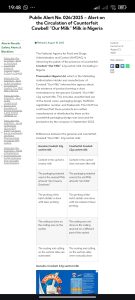
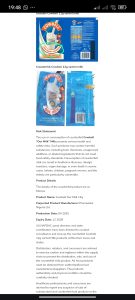
NAFDAC clarified that Promasidor Nigeria Ltd, the authentic manufacturer, stopped producing Cowbell “Our Milk” in September 2023.
The product was replaced with Cowbell “Our Creamy Goodness.” Despite this, fake versions of the old product have found their way into Nigerian markets.
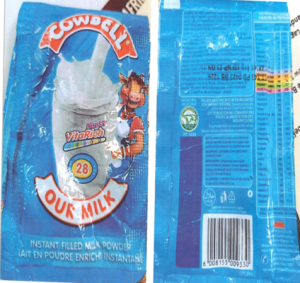
Picture of Fake cowbell milk.
The counterfeit sachets bear the brand name, NAFDAC registration number, and familiar packaging design, making them difficult for unsuspecting buyers to identify as fake.
Health Dangers of Fake Cowbell Milk
NAFDAC warned that the consumption of these counterfeit products poses serious health risks.
Fake milk could contain toxic chemicals, harmful additives, or diluted ingredients that endanger human health.
Infants, children, pregnant women, and the elderly are the most vulnerable. Possible dangers include:
- Foodborne illnesses
- Allergic reactions
- Organ damage
- Long-term health complications
- In extreme cases, death
Counterfeit Product Details
- Product Name: Cowbell “Our Milk” 12g sachet
- Purported Manufacturer: Promasidor Nigeria Ltd
- Production Date: 04/2025
- Expiry Date: 12/2028

Picture of original cowbell milk.
NAFDAC Issues Strong Warning
The agency urged Nigerians to remain vigilant and avoid purchasing the counterfeit milk.
Healthcare professionals, distributors, and consumers have been advised to report suspicious sales of substandard or fake products immediately.
Reports can be made through:
The nearest NAFDAC office
Toll-free line: 0800-162-3322
Email: sf.alert@nafdac.gov.ng
NAFDAC also called on traders and retailers to stop selling the fake sachets.
The agency assured the public that strict enforcement measures are being taken to remove the counterfeit products from circulation.
This is not the first time Nigerians have faced risks from fake food and beverages.
Experts warn that counterfeit consumables are becoming more sophisticated, often making them difficult to spot.
Consumers are advised to always check product details, expiry dates, and packaging changes announced by manufacturers.
By highlighting the dangers and raising awareness, NAFDAC says it hopes to protect Nigerians from avoidable health crises linked to fake milk products
Health
Why Men Who Desire Healthy Children Should Marry Before 40

Men planning to father children have been strongly advised to marry and start a family before turning 40.
Medical experts warn that delayed fatherhood increases the risk of weak sperm and genetic disorders in children.
In an exclusive interview with PUNCH Healthwise, the President of the Nigerian Association of Urological Surgeons, Professor Nuhu Dakum, explained that male fertility sharply declines with age.
He stressed that sperm quality begins to deteriorate after 40, leaving children more vulnerable to inherited health conditions.
According to him, “Sperm quality reduces with age. The count, motility, and morphology are all affected. There is also an increase in DNA damage, which predisposes babies to genetic diseases.”
Why Men Over 40 Face Higher Risks
Professor Dakum revealed that several factors contribute to poor sperm quality as men grow older.
These include natural biological changes, smoking, alcohol abuse, poor nutrition, and exposure to toxins at work or in the environment.
He emphasized that while sperm decline can vary from man to man, the drop becomes significant around 40.
This means men who delay starting families until middle age could struggle with infertility and pass on genetic risks.
The concern gained fresh attention after a viral post on X (formerly Twitter) sparked a heated debate.
The post claimed that older men produce weak sperm that increases the chances of children developing genetic mutations such as autism, Down syndrome, schizophrenia, and dwarfism.
Medical experts say these claims have some truth.
The Texas Fertility Centre has confirmed that sperm quality and quantity decline with age, leading to age-related male infertility.
Similarly, Healthline, a trusted medical portal, reports that men over 50 experience a significant drop in sperm quality, with sperm count and unhealthy lifestyle habits playing key roles in the decline.
Healthy Living Can Improve Sperm Strength
Professor Dakum, however, clarified that older men can still father healthy children if they maintain good sperm health.
He stressed that healthy living benefits both general well-being and sperm quality.
He said, “There may not be much to prevent if the man is already old, but living healthy improves general health and sperm health.
Options like embryo genetic selection or sperm DNA testing can reduce risks, though these are costly and not widely available. Donor sperm is also an option for couples facing such challenges.”
What This Means for Nigerian Men
The warning is clear: delaying fatherhood comes with health risks for both fathers and children.
Men who prioritize career or wealth before family may unknowingly endanger their future children’s health.
Medical experts now urge Nigerian men to plan early, get married before 40, and adopt a healthier lifestyle to protect their fertility.
With infertility cases rising in Nigeria, the advice serves as a wake-up call.
Alcohol consumption, smoking, poor diets, and late marriages are becoming common among Nigerian men. But experts insist that fertility should not be left to chance.
Starting a family earlier in life, avoiding harmful habits, eating well, and reducing exposure to toxins remain the most effective ways to preserve fertility.
For men who are already older, fertility specialists recommend medical consultations, sperm analysis, and lifestyle changes.
Genetic testing may also help reduce risks when planning for children.
Conclusion
Professor Dakum’s advice highlights an often-overlooked issue in male health. Sperm quality is not permanent, and time works against men just as it does against women.
Nigerian men now face a crucial decision: delay marriage and risk weak sperm, or act early and secure a healthier future for their children.
Africa
FULL LIST: Federal Hospitals With Reduced Dialysis Costs In Nigeria

President Bola Tinubu has approved a major reduction in the cost of kidney dialysis in federal hospitals. The price has dropped from ₦50,000 to ₦12,000.
This move comes as part of his administration’s push to make healthcare more affordable for ordinary Nigerians.
The announcement came on Monday through Daniel Bwala, Tinubu’s Special Adviser on Policy Information.
He revealed the development in a post on his official X, formerly Twitter handle.
According to him, the subsidy already covers several federal medical centres and teaching hospitals across Nigeria’s six geopolitical zones.
Bwala explained that this policy has started running in major health institutions, ensuring that kidney patients now pay less for treatment.
He also noted that more hospitals will join the scheme before the year ends, giving broader access to citizens.
Currently, patients can access the reduced dialysis service at these hospitals:
1. Federal Medical Centre (FMC), Ebute-Metta, Lagos
2. Federal Medical Centre (FMC), Jabi, Abuja
3. University College Hospital (UCH), Ibadan, Oyo State
4. Federal Medical Centre (FMC), Owerri, Imo State
5. University of Maiduguri Teaching Hospital (UMTH), Maiduguri, Borno State
6. Federal Medical Centre (FMC), Abeokuta, Ogun State
7. Lagos University Teaching Hospital (LUTH), Lagos
8. Federal Medical Centre (FMC), Azare, Bauchi State
9. University of Benin Teaching Hospital (UBTH), Benin City, Edo State
10. University of Calabar Teaching Hospital (UCTH), Calabar, Cross River State.
More hospitals will be added as the program expands, Bwala confirmed. He stressed that Tinubu’s decision reflects his promise to put citizens’ welfare first.
By cutting costs, the government wants to ease the financial pain that families face while battling chronic illnesses.
Furthermore, this step is not an isolated policy. It fits into the Tinubu administration’s wider healthcare reforms.
Alongside dialysis subsidies, the government is rolling out oncology and diagnostic facilities to improve cancer and disease detection.
In addition, about 120,000 frontline health workers will undergo retraining to boost the quality of care across the country.
The President has also redesigned the Basic Health Care Provision Fund (BHCPF) to make primary healthcare more accessible in rural and urban areas.
Another key reform is the approval of free Caesarean sections for vulnerable pregnant women in federal hospitals, further showing the government’s focus on saving lives.
With these reforms, Tinubu aims to rebuild trust in Nigeria’s healthcare system.
The reduction in dialysis cost, in particular, gives hope to thousands of kidney patients who have long struggled with overwhelming medical bills.
Featured
Nigerian scientist Dr. Samuel Achilefu invents infrared goggles to detect cancer cells in real time
DDM News

(DDM) – Nigerian-born scientist Dr. Samuel Achilefu has developed groundbreaking infrared goggles that allow surgeons to see cancer cells while operating.
The revolutionary technology makes cancer cells glow in real time, enabling surgeons to identify and remove tumors with higher accuracy.
Before this invention, doctors struggled to confirm complete tumor removal during surgery and often relied on lab results afterward.
Dr. Achilefu’s fluorescence-guided goggles eliminate that delay, improving precision and significantly reducing patient trauma.
The innovation also reduces the likelihood of repeat operations, giving patients a better chance at faster recovery.
DDM gathered that Dr. Achilefu, a distinguished radiologist, has published more than 300 scientific papers.
He also holds over 70 medical patents in the United States, cementing his place among the world’s leading innovators in medical science.
Born in Obingwa, Abia State, Nigeria, his academic journey took him across continents.
He earned a PhD in molecular physical and materials chemistry before completing postdoctoral training at Oxford University, focusing on oxygen transport systems.
Today, his work blends chemistry, engineering, and medicine to transform cancer treatment globally.
Surgeons using his device no longer have to rely solely on touch or sight to trace tumors.
Instead, the glowing effect of cancer cells under infrared light allows for precise cutting with minimal risk.
Medical experts say this innovation could revolutionize cancer surgeries worldwide.
Dr. Achilefu’s achievements are celebrated not only in the U.S. but across Africa, where he remains a source of inspiration.
He has received international awards for innovation, including recognition for improving global healthcare outcomes.
His invention underscores the power of African excellence in science and technology.
#TheAfricanDream continues to spotlight innovators shaping the world from humble beginnings.
🚨 Follow DDM WhatsApp channel Now!
Get breaking news, hot gist, and updates FIRST!
*📲 Click to join 👇* https://whatsapp.com/channel/0029Vajkwdc4dTnFHl19vW3g
*Apply at the link below and Start Your Tech Journey:*
👇🏽
https://www.ddm.media/cohort-6
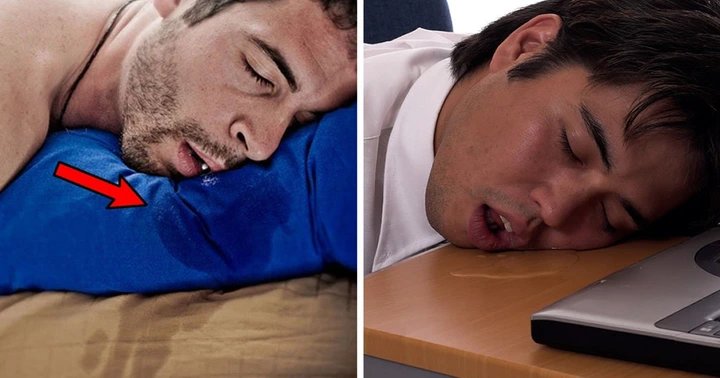
(DDM) — Waking up to find a wet pillow can be uncomfortable and sometimes embarrassing.
While occasional nighttime drooling may be caused by simple factors like sleeping positions or temporary nasal congestion, persistent drooling during sleep could indicate deeper health concerns.
Medical experts told DDM that chronic drooling, medically referred to as sialorrhea, should not be ignored, as it may be an early warning sign of certain medical issues.
One possible cause is sleep apnea, a condition where breathing repeatedly stops and starts during sleep. This can lead to mouth breathing and increased saliva flow.
Another is gastroesophageal reflux disease (GERD), in which stomach acid flows back into the esophagus, irritating the throat and triggering excessive saliva production.
Neurological disorders such as Parkinson’s disease, cerebral palsy, or the aftermath of a stroke can also impair muscle control, making it harder to swallow saliva during sleep.
Allergies and sinus infections are another common trigger, as blocked nasal passages force individuals to breathe through their mouths, increasing drooling.
Dental issues, including misaligned teeth or oral infections, may contribute by affecting jaw alignment and swallowing patterns.
Lastly, certain medications, especially those with side effects that increase saliva production or relax muscles, can worsen nighttime drooling.
Health professionals recommend that anyone experiencing persistent drooling during sleep should seek medical evaluation to rule out serious conditions and find targeted solutions.
Possible treatments may include lifestyle adjustments, medication changes, dental corrections, or therapies to improve muscle control.
DDM gathered that, in some cases, treating the underlying condition, such as managing GERD or addressing allergies, can significantly reduce nighttime drooling.
Ignoring the symptom may lead to complications, including skin irritation, disrupted sleep, and social discomfort.
-

 Featured4 days ago
Featured4 days agoYour Attacks on Peter Obi Are Petty, Stop It! Chekwas Rebukes Soludo
-

 News3 days ago
News3 days agoTension in Anambra community as senior police officer shoots kinsman dead
Colleagues, others try cover-up; victim's family fights back
-

 News6 days ago
News6 days agoAnambra South Bye-Election: APC Chief Rescues Deputy Gov Caught In Vote Buying From Angry Youths
By Chuks Collins, Awka
-

 News5 days ago
News5 days agoNigerian visa applicants must provide 5-yr social media history — US embassy
-

 Analysis6 days ago
Analysis6 days agoSystemic Sabotage: How APC, INEC Colluded To Undermine Amamgbo’s Senatorial Bid
By Arthur Ezechukwu
-

 Celebrity/Entertainment17 hours ago
Celebrity/Entertainment17 hours agoHow Nigerian TikToker Geh Geh Made ₦45 Million in One Night
-

 News3 days ago
News3 days agoTerrorist Organisation: APC, PDP Members in US, UK, France Risk Deportation
-

 Celebrity/Entertainment4 days ago
Celebrity/Entertainment4 days agoWhy single mothers can’t raise boys into proper men — Jim Iyke
-

 News6 days ago
News6 days agoBREAKING: Troops arrest Nigeria’s most wanted terror kingpin
-

 News2 days ago
News2 days agoVandal electrocuted while vandalizing Aba power infrastructure











